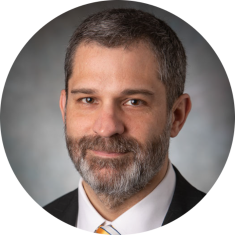Investigating Conflicts of Interest
- Dec 17, 2024 8:00 a.m.
- Central Time (CT)
Conflicts of interest can present significant fraud risks for corporations, government agencies, fiduciaries, customers and suppliers. It is also one of the most difficult areas of fraud to investigate and obtain adequate evidence. Improper investigations can create counterclaims and civil actions against organizations and fraud examiners.
This seminar will explore how and why conflicts of interest arise and warning signs of a conflict of interest.
You will gain a better understanding of these types of engagements and learn how you can protect your organization from conflicts of interest.
Understanding of basic fraud examination techniques.
Implement investigative techniques for conflict of interest engagements.
Deal with witnesses and the legal implications of these unique investigations.
Obtain appropriate evidence and preserve it to build a conflict of interest case.
Conduct the flow of conflict of interest investigations.
Prepare witness statements, documents and electronic evidence.
| CPE Credit: | 8 |
|---|---|
| Advanced Preparation: | None |
| Delivery Method: | Group Internet Based |
| Auditing: | 8 |
|---|
Registration Fee:
ACFE Members: $415
Non-Members: $515
Early Registration Deadline: November 18, 2024
Register by the Early Registration Deadline to SAVE USD 100!
Conflict of interest cases are among the most difficult white-collar offenses to investigate. They generally occur at the upper levels of an organization and involve several characteristics that present unique challenges to fraud examiners. This session introduces the elements of conflicts of interest, examines why they occur and discusses the legal elements involved in investigating such schemes.
The specific conflict scenarios described in this session all have common elements and illustrate the general moral and legal maxim that a person cannot serve “two masters.” The scenarios presented are variations of the rule that a fiduciary, agent or employee must act in good faith, with full disclosure, in the best interest of the principal. You will also learn how to detect conflicts of interest and what red flags to look for.
This session will cover the methodology and approach that can be used to investigate conflicts of interest cases. You will discuss how to plan for the investigation, who should be on the investigation team, specific interviewing tips and techniques for conflicts of interest investigations, and other considerations to keep in mind while working a conflict of interest case.
Lunch Break
Internal company records, public records and non-public external documents are almost always important in a conflict of interest case. Once the relevant data and documents have been obtained, the investigation team must analyze the content before moving forward with the investigation. In this session, you will learn about different sources of information, as well as techniques and best practices for collecting, organizing and analyzing the evidence you gather.
Victims of conflicts of interest can pursue civil actions to recover their losses from the perpetrator. This session explores the process of undertaking these civil actions and provides tips for fraud examiners on how to work with attorneys to make the case successful. In addition, you’ll learn how to protect yourself against civil claims that defendants might use to impede the investigation or to create side issues at trial.

Assistant Special Agent in Charge
U.S. Department of Justice OIG
Payment must be received by November 18, 2024 to receive early registration discount.
Our cancellation policy is intended to keep costs low for attendees. Due to financial obligations incurred by the ACFE, Inc., you must cancel your registration prior to the start of the event. Cancellations received less than 14 calendar days prior to an event start date are subject to a $100 administrative fee. No refunds or credits will be given for cancellations received on or after the start date of the event. Those who do not cancel and do not attend are responsible for the full registration fee. Should an event be cancelled or postponed by the ACFE due to unforeseen circumstances, the ACFE will process a full refund of registration fees within 30 days of such circumstances becoming known. The ACFE will attempt to notify affected customers by phone and email after it determines cancellation is necessary.
ACFE events are unmatched in scope and effectiveness and backed by our unconditional satisfaction guarantee. If you attend an ACFE event and are not completely satisfied, please contact an ACFE Member Services Representative at MemberServices@ACFE.com or call (800) 245-3321 / +1 (512) 478-9000.
Terms and Conditions
 The Association of Certified Fraud Examiners, Inc. is registered with the National Association of State Boards of Accountancy (NASBA) as a sponsor of continuing professional education on the National Registry of CPE Sponsors. State boards of accountancy have final authority on the acceptance of individual courses for CPE credit. Complaints regarding registered sponsors may be submitted to the National Registry of CPE Sponsors through its website: www.nasbaregistry.org.
The Association of Certified Fraud Examiners, Inc. is registered with the National Association of State Boards of Accountancy (NASBA) as a sponsor of continuing professional education on the National Registry of CPE Sponsors. State boards of accountancy have final authority on the acceptance of individual courses for CPE credit. Complaints regarding registered sponsors may be submitted to the National Registry of CPE Sponsors through its website: www.nasbaregistry.org.